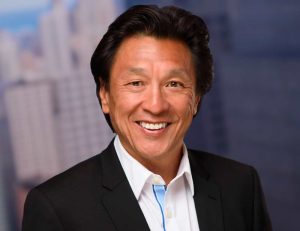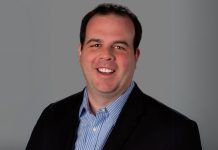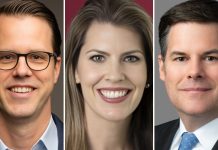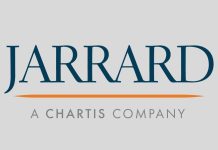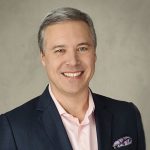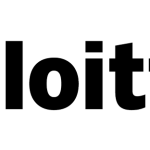1. What is your vision for Kearney Like any trusted adviser, Kearney wishes to be the #1 choice with as many clients as possible, where we are mutually important and indispensable to each, where we are most relevant on the most fundamental issues and topics, and where we have opportunities for on-the-job apprenticeship and talent development. I would like our client portfolio to span all major enterprises: corporate, public sector and private equity-led, across all key geographies. So, where we may now have more than one hundred clients where we are truly considered #1, I would like to see many more hundreds. Becoming #1 with more clients also means we will serve more clients around the globe, including in growing geographies of the Middle East and the Global South. Kearney will also grow even more brand awareness in the C-suite so that we are not a “best kept secret.” On the capabilities side, we continue to invest in areas we are known for, such as strategic operations and transformations where we navigate interdependent issues, such as macro geo Scenarios, Supply chain, Sustainability and Software-led transformations, our 4 Ss. On the people and culture side, we will continue to be a beacon for allyship, belonging and collaboration, the “ABC”s of building a firm that can endure over multiple generations and inspire talent with our authenticity and diversity. In five to ten years, if we do all the above well, we will continue to profitably grow at 15%+ per year, which in my view is the “ideal” organic growth rate for a people-based profession, (acquisitions would be an additional growth boost, and we have made four in the last six months alone). We have performed at this level during my tenure, and are on a trajectory to continue at that pace. 2. The consulting industry is highly competitive with many well-known firms, how does Kearney differentiate itself? All trusted advisory firms differentiate based on both expertise and empathy: not only what you’re known for and who you know, but also how well you listen and serve their broader organizations. Clients give us very specific feedback on why Kearney is different, better, often preferred. We are known for reliably delivering tangible client outcomes, leveraging deep content in both sectors and topics, and most importantly at a practical level below the fancy high-level slides our competitors might be applauded for. We work with the entire organization to enable change, versus serving only the most senior economic sponsor of the assignment. Our clients tell me that Kearney is different, better, preferred because our instinct is to make them the hero of the success story, and in an unpretentious, sleeves-rolled-up working style. That approach is refreshing to them (and they often work with multiple consultancies), because we are interested in collaboratively and actually fixing the problem, not satisfied with simply creating an elegant framework and then seeking to hang around for what’s next. So, we differentiate by sticking to our strengths: Kearney overdelivers, stays hungry and humble, takes no assignment or client for granted, and works with the client at all levels for the required change, with the most human interventions. This puts Kearney into a category of one, rather than just another consulting firm. 3. How has your leadership philosophy evolved over the years? As a young, immigrant outsider in the deep south of the US, I first learned the importance and skill of finding role clarity and maximizing the chance of building rapport with others, through my love of playing team sports of all kinds, in all seasons. If you can demonstrate that you can tangibly contribute to winning championships, then you will amplify cohesion towards a shared ambition, and you might even be chosen to captain that cause, that team. It’s important to role model the success that you seek together. In the workplace, I have observed that leaders create broader followership by how well they deliver on People, Purpose, and Praise. All teammates seek to be safe, seen, supported, and inspired. And they bring their best when there is a true purpose, and they have role clarity and receive individual acknowledgement. In my articles, podcasts, and book on the topic of workplace “joy,” I double click on some of these notions more completely. More recently, during the pandemic and with all the social and global turmoil since then, I learned that leaders must stay human too. They need not know it all (they don’t) and should reveal a more authentic CEO style (being yourself is good enough) to build team rapport and true followership: listen, reflect, communicate, share, and just be yourself. I called this recent period, the “unmasking” of the CEO. It’s not only a business requirement—it’s a leadership positive. In my context, I have found that leading a diverse, global firm of insecure overachievers (aren’t we all?) requires a measure of all the above: an orderly focus on people, purpose, and praise, a passionate interest in winning championships, and an authentic personal style. 4. Being a consultant can often be thought of as a very challenging profession because of the heavy travel schedule, do you think that will change? Challenge can be its own reward. Being asked by the world’s most influential organizations to help them solve problems and tackle change that they cannot do on their own is empowering, exhilarating, and exhausting. If you love what you do, and do what you love, this challenge is addictive, at least it has been for me. But that challenge can tax us physically for sure. The nature of how this “challenging” work is delivered, however, might adapt, given the role of technology as an enabler for remote productivity. My own view is that this genie is out of the bottle: there remains a need for in-person work with clients and with your teams, to build cohesion, to learn and to communicate more holistically, even transformatively. However, the tech-enabled virtual workplace is here: it enables more transactional productivity; it benefits those who cannot or wish not to travel; but it’s not perfect either. Productivity is not a location. Problems are solved together, but not necessarily in the same room. Each person must judge whether the overall professional challenge is worth the travel and the other personal tradeoffs—is the juice worth the squeeze? For the team leaders, we must find a way to weave in the most travel-liberating aspects of technology while preserving the person-to-person benefits of on-the-job learning, apprenticeship, and client service, which is the true craft of high-value consulting. 5. Can you tell us about your book and why you chose the topic of Joy as the key theme? Why should any of us settle for anything less than joy at work? We are born happy, we go to first day of school happy, we graduate school and then go to our first jobs happy, but we then get to the workplace and our research shows that 50%+ of people do not experience joy at work, even though 90%+ expect that they should. This research was consistent across demographics, geographies, and even company size. What explains this? When I assumed my role as leader of a global services firm, I wanted to explore how to inspire my own teams and help CEOs lead theirs too. Culture should be intentional and aspirational; it should strive for joy. Leaders should too. My initial research in 2019 pre-COVID for my article in the Harvard Business Review and then four seasons of podcast interviews (with academics, clients, athletes, Broadway producers, sociologists, entrepreneurs, and investors) on the topic of Joy at Work explored this core issue: how to unlock people energy, the most renewable energy source out there. This research led me to write my recent book, Joy Works: Empowering Teams in the new Era of Work. We need people energy to solve the problems of the world. People want purpose and praise. They want joy and justice. They want to be unleashed and inspired. Our research highlighted that organizations dramatically increase the likelihood of creating a workplace of joy if their leaders emphasize harmony, impact, and acknowledgement: people, purpose, and praise. Culture always wins.
Top CEO Interview: Alex Liu, Kearney’s CEO, Managing Partner, and Chairman of the Board
in the next five to ten years?

